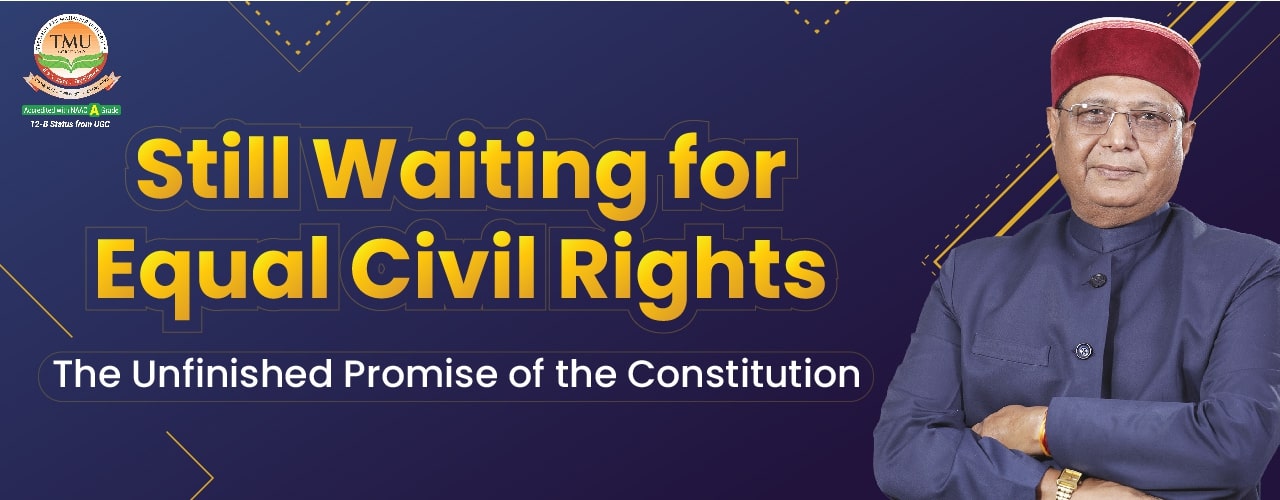Still Waiting for Equal Civil Rights: The Unfinished Promise of the Constitution
Table of Contents
By Prof. (Dr.) Harbansh Dixit
India’s Constitution, adopted in 1950, promises equality before the law and equal protection of rights to all its citizens. Yet, over seven decades later, millions of Indians still wait for these rights to become a reality. The gap between constitutional ideals and everyday experience remains painfully wide, especially for marginalised communities.
From economic disparities and caste-based discrimination to lack of access to legal remedies, the journey toward equal civil rights is far from complete.
Article 14: Equality in Principle, Not Always in Practice
Article 14 of the Constitution guarantees that the State shall not deny to any person equality before the law or equal protection of the laws. Yet, in real-life scenarios, whether it’s in courtrooms, police stations, employment offices, or educational institutions, the quality of justice and opportunity varies drastically based on one’s social or economic identity.
Even today:
- Dalits and tribal communities face systemic exclusion.
- Women and minorities struggle for basic dignity and representation.
- Economically poor litigants are often ignored in favour of the influential.
Teerthanker Mahaveer University
Apply for Admission
Click Here To Apply for Admission
Access to Law: Still a Privilege for Some
The biggest irony of the Indian legal system is that while laws are equal for all, access to them is not. Legal language, procedures, and the cost of litigation keep the average citizen away from justice. Public legal aid remains underfunded and underused.
This means that even basic civil rights—property rights, protection from discrimination, right to privacy, and even freedom of expression—are exercised unequally.
The Gap in Enforcement
Laws have been passed to protect civil rights, like the SC/ST (Prevention of Atrocities) Act, Right to Education Act, and Right to Information Act. But their implementation is riddled with delays, bias, and administrative lethargy.
The poor often don't know their rights. Even if they do, they may not have the resources or courage to challenge the system. This creates a society where legal protections exist on paper, but not in practice.
Towards True Equality
The idea of “equal citizenship” goes beyond slogans. It must reflect in:
- Equal treatment in law enforcement
- Unbiased access to courts and legal aid
- Freedom from socio-cultural prejudice
- Empowerment through education and awareness
We must also push for greater legal literacy, simplification of laws, and decentralised grievance redressal systems so that no citizen feels voiceless in the face of injustice.
Conclusion: Justice Must Reach Every Doorstep
India cannot call itself a complete democracy until equal civil rights are guaranteed not just in law books, but in every village and every courtroom. True freedom comes not just from independence, but from inclusion.
“Civil rights delayed are civil rights denied. The Constitution promises equality—now it's time to deliver it to every citizen.”
This content gives an overview of the programme and is for educational purposes only. For updated admission guidelines and counselling support, please connect with our Counsellor Team.














